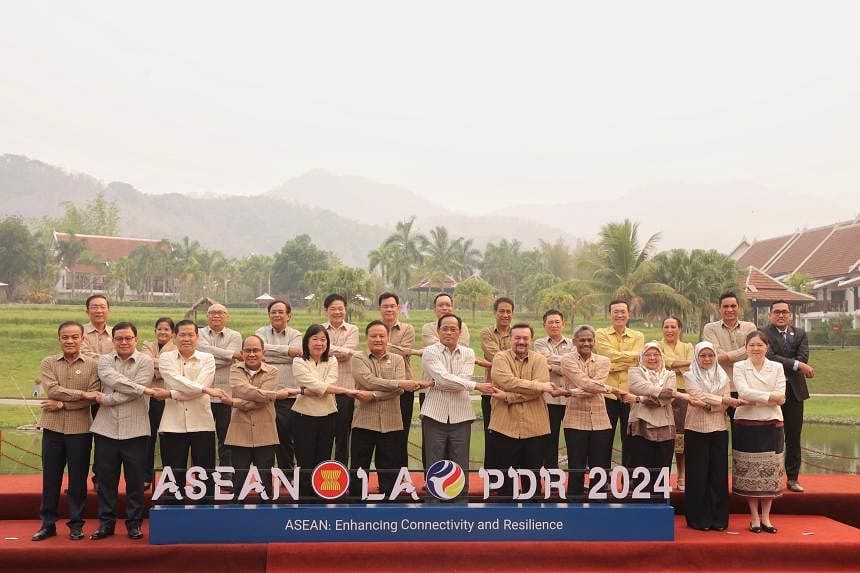Asean finance chiefs end Laos meeting amid hopes of improving economy despite challenges

Source: The Straits Times
Author: Ovais Subhani
SINGAPORE - A rebound in exports and tourism is likely to aid most South-east Asian economies to perform better this year than 2023, said top finance officials of the region at a meeting in Laos.
However, the outlook is clouded by "adverse financial spillovers from geopolitical tensions, volatility in global commodity prices, and weaker economic growth in China," noted the joint statement issued at the conclusion of the 11th Asean Finance Ministers' and Central Bank Governors' Meeting on April 5.
Singapore's Deputy Prime Minister and Minister for Finance Lawrence Wong attended the two-day gathering aimed at enhancing the bloc's monetary and financial cooperation, forging an inclusive and sustainable future, and embracing the digital economy.
DPM Wong concluded a series of meetings with ministers and officials from around the region in which they discussed how Asean countries can work together to enable sustainable and inclusive growth - from enhancing connectivity and payment linkages to accelerating financing for green transitions.
"One thing is clear - no Asean country can go it alone to achieve our common goals. It is only by working together that we can realise Asean's full potential," he said in a social media post from the city of Luang Prabang - once the royal and religious hub of Laos - where the meeting was held.
"With our collective efforts, Asean will remain a bright spot in the global economy, and bring benefits for all our peoples," he added.
The Asean joint statement noted that the region's economic performance is underpinned by strong domestic demand and increased investment activity amid moderating inflation.
However, structural issues - including climate change, rapid digitalisation, and the ageing population - will continue to shape economic development across Asean.
"Stronger regional economies, through strengthening integration and connectivity in Asean are essential to navigate the challenging global environment," it said.
The Asean ministers and central bankers also exchanged views with officials of ASEAN+3 Macroeconomic Research Office (AMRO), the Asian Development Bank, World Bank and the International Monetary Fund on global and regional economic outlook, risks, and challenges to the region.
AMRO, in its January outlook report, expects the region to grow by 4.9 per cent, up from 4.3 per cent in 2023.
Among other key issues, the finance ministers and central bankers discussed the bloc's initiatives to boost financial integration and cooperation. They also welcomed in the joint statement the progress in the adoption and expansion of cross-border QR payment services among Asean member states.
The statement noted that the recent launching of Cambodia-Laos, Cambodia-Vietnam, Singapore-Indonesia, Singapore-Malaysia, and Laos-Thailand linkages, have placed Asean at the forefront of QR payment services integration globally.
The Working Committee on Payment and Settlement Systems was asked to continue identifying challenges in the adoption and usage of cross-border QR payments, draw up plans to promote adoption and push for collaboration between central banks and the banking industry associations to further drive usage.
The launch of the cross-border person-to-person fund transfer linkage between Singapore-Malaysia, which enables instant fund transfers via proxies like mobile phone numbers, was also welcomed.
